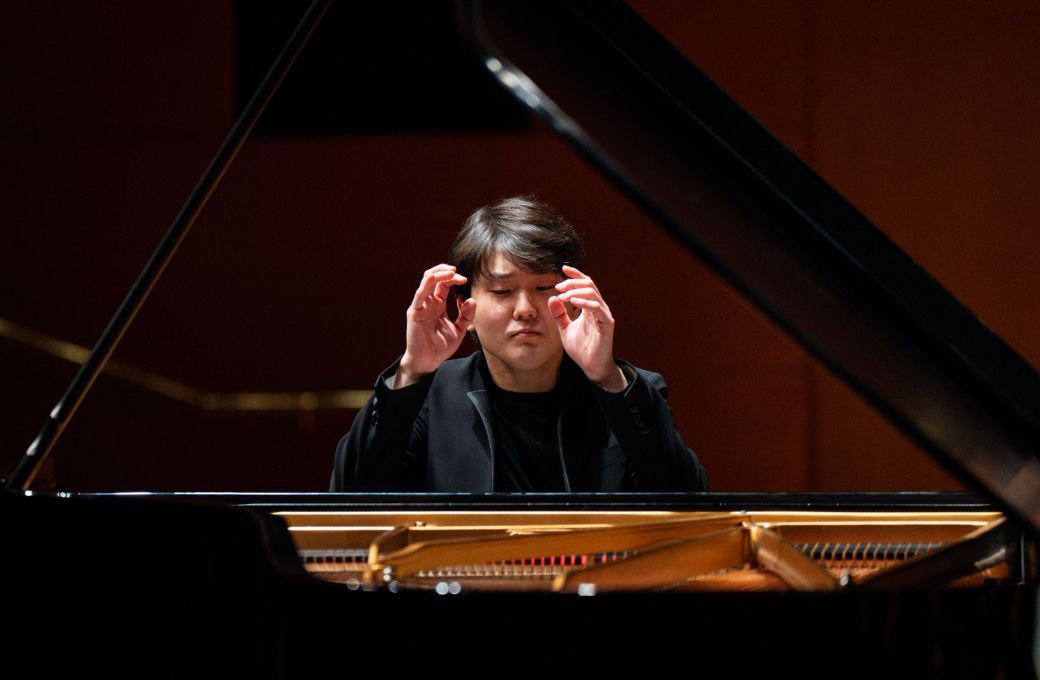Stiff Ravel, but ebullient Brahms–Schoenberg from Paavo Järvi and the LA Phil
Arnold Schoenberg was ostensibly the star of last night's Los Angeles Philharmonic program, but in the first half he tussled for the limelight with a composer colleague from the other side of the trenches of the Great War. Maurice Ravel counted on some assistance from another star, one whose trajectory is currently on the ascent.
I missed Seong-Jin Cho's all-Ravel recital earlier this week and wondered to myself what kind of a pianist he was. There was a temptation to read something into his choice of repertoire: passing over Ravel's tougher, more introspective Piano Concerto for the Left Hand in favor of the glittering Piano Concerto in G.
No sooner than Cho set his fingers on the piano keys that it became immediately apparent that his playing – crystalline with a touch of metal – was more natively calibrated towards the sunnier of Ravel's two concertos. His fingerwork sparkled in the perpetuo moto finale, with its cascades of runs and wry, Petrushka-like interjections. Yet for most of the performance, he sounded tentative, uneasy. One felt his striving after impetuosity in his initial entry in the first movement, for example, only for him to stiffen up and smudge a few notes along the way.
On his own at the start of the central Adagio assai, his rigidity was further exposed. Rather than float aloft its dreamy current, Cho could not unshackle himself from the music's bar lines or his plodding left hand. He was interpretively constrained, too, in his encore, Ravel's A la manière de Chabrier. Cho has the music in his mind, one feels, if only could let his hands pour it out. His pianism intimates greatness yet to come, but perhaps he is not quite there yet.
Paavo Järvi, the Philharmonic's guest conductor, was Cho's splendid partner. A yielding and attentive collaborator, gifted with a natural sense of timing, a soloist could not hope for better.
The heart of the program was Johannes Brahms, albeit by way of Schoenberg. His orchestration of the elder composer's Piano Quartet in G minor is not so much an homage as it is almost a declaration of ownership. Those listeners who wince at the very name of Schoenberg will not only never appreciate the vibrant and deeply-felt expressivity of his music, but also his sovereign élan as a sound colorist; a genius for which he ought to be ranked alongside Tchaikovsky and Mahler. Horn farts, guffawing trombones and giggling xylophones skittering over the orchestra are all jammed into Brahms' severe score. It all sounds as unlikely as seeing the Great Bearded One lindy-hopping underneath the glow of Swing Era neon, his face cleanly shaved and unruly hair neatly brilliantined.
In this performance, the LA Phil declared their own proprietary interest in this Brahms–Schoenberg mash-up – they instigated its creation nearly a century ago. Hearing them roar through this score was to be reminded of what a stunning, precision instrument of an orchestra they have become. They own this score.
The program began with the brief Concerto for String Orchestra by Grażyna Bacewicz. Brief, but not unsubstantial. Shostakovich was among her admirers and he bitterly lamented her death in 1969. Bacewicz's tough surface belies what at heart is her elegant, if guarded lyricism, a quality brought to the fore by concertmaster Martin Chalifour's pliantly expressive solos. Her essential songfulness was most memorably heard in the concerto's slow movement: a rapt, nocturnal aria that seems to sing of empty city streets, drenched in wintry moonlight, until it fades into the stars.

Comments